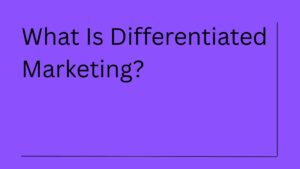Software white labeling has emerged as a strategic powerhouse, transforming how companies deliver digital solutions to their customers. Think of it as wearing a designer suit—while someone else crafted the fabric and stitched the garment, you present it with your own brand label, making it uniquely yours. This powerful business model has revolutionized how companies across industries, from fintech to healthcare, bring sophisticated software solutions to market without the extensive time and resources typically required for in-house development.
As businesses navigate the increasingly competitive digital landscape, the ability to quickly deploy robust, market-ready solutions has become more crucial than ever. White label software bridges this gap, offering a perfect blend of efficiency and software customization that allows companies to focus on what they do best – serving their customers and growing their brand. Whether you’re a startup looking to make your mark or an established enterprise seeking to expand your service portfolio, understanding the intricacies of white-label software could be the key to unlocking your next phase of growth.
This article aims to clearly understand “what is White Label Software”, its numerous advantages, and how businesses across various industries can harness its potential to gain a competitive edge.
Defining -What is White Label Software
White labeling software, often referred to as Private Label Software, is a solution created by a software development company but rebranded and resold by other businesses under their own brand name. Essentially, it allows businesses to offer software products or services to their customers without having to build the software from scratch.
Imagine you own a spa and want to offer an online booking system to your customers. Instead of developing the software internally, you can purchase a White Label Booking Software solution, customize it with your spa’s branding and features, and offer it to your customers as if it were your own creation. This enables you to focus on your core business while providing added value to your customers.
How Does White-Label Software Work?
White-label software is an efficient way for businesses to quickly provide services to their clients. Rather than developing software from scratch, companies can purchase a white label solution from another provider and brand it as their own. This process not only saves development time but also enables businesses to profit by selling the service at a marked-up price.
For software developers, offering white label products allows them to focus on improving larger offerings, while smaller companies can benefit by providing services they might not have the technical expertise to develop on their own. It’s a win-win: developers can increase their reach by offering their product to a wider audience, and businesses can offer their clients more value without dedicating significant resources to software development.
For companies lacking in-house expertise, white label program can be a valuable tool, allowing them to offer new services and expand their product portfolios without the need for complex development efforts.
Benefits of White Label Software
White label software offer a wealth of benefits for businesses looking to expand their offerings, increase efficiency, and maintain brand integrity. Below are the key advantages of using white label solutions:
Rapid Market Entry
Speed is critical in many industries, especially those with fast-moving trends or highly competitive environments. White label platforms allow businesses to launch new products or services rapidly, without waiting for lengthy software development cycles. By leveraging an existing solution, companies can expedite their time to market, enabling them to capitalize on emerging opportunities and trends faster than their competitors. This agility is particularly beneficial for businesses in tech, e-commerce, and other sectors where consumer preferences shift quickly. White-label solutions allow companies to remain responsive and relevant in the marketplace.
Scenario: Consider a startup aiming to enter the e-commerce space. Building a custom e-commerce platform involves extensive coding, testing, and debugging, which could delay the launch by several months. By opting for a White Label e-commerce solution, the startup can launch its online store within weeks, capitalizing on current market trends and consumer demands. Even though a good deal of ecommerce website builders are available in the market, white label solution stand out with their unique offerings.
Cost-Efficiency
One of the most appealing benefits of white-label solutions is the significant reduction in time and costs. Developing a new product or service from scratch can take months or even years, with substantial investment in research, development, and testing. White-label software eliminate this need, as businesses can simply adopt an existing product or service and start offering it to their customers almost immediately. Not only does this save businesses valuable time, but it also reduces the financial investment required for development, allowing companies to allocate resources to other areas of their operations, such as marketing and customer acquisition.
Scenario: A small business with limited capital can avoid the hefty expenses associated with custom software development by using White Label solutions. For instance, a local gym could use a White Label fitness app to offer virtual training sessions, without the financial burden of creating the app from scratch.
Branding and Customization
The primary goal of a white-label program is to allow businesses to offer a product or service under their own brand name. This is crucial for maintaining brand consistency and recognition in the market. By leveraging a white-label service, businesses can ensure that their brand is front and center, even when the underlying product or service is provided by a third party. This strengthens brand loyalty and reinforces the company’s image and reputation with customers. By using white-label products, businesses can focus on customer relationships and marketing, while leaving the product or service development to experts in the field.
Scenario: A company specializing in health supplements can use White labeled software for its online store and customize the interface to reflect its brand colors, logos, and unique selling propositions. This ensures that customers have a cohesive experience from the website to the product packaging.
Access to Expertise with White label software
White label software is often developed by specialized software companies with deep industry knowledge. By leveraging their expertise, businesses can offer high-quality software solutions without needing an in-house team of developers. This ensures that the software is reliable and up-to-date.
Scenario: A financial advisory firm can use White label software for portfolio management and client reporting. The software provider’s expertise ensures that the platform is secure, compliant with regulations, and incorporates the latest financial technologies.
Focus on Core Competencies
White label solution enable businesses to stay focused on what they do best—whether that’s marketing, customer service, or operations—while outsourcing product or service development to experts. Instead of having to invest in building new products, businesses can concentrate on their core competencies, which is especially important for smaller companies or startups that may lack the resources to diversify their offerings. By partnering with white label providers, businesses can expand their service offerings without straying from their core strengths, making them more competitive in their respective markets.
Scenario: A restaurant chain can use White label software for online ordering and delivery management, allowing it to focus on food quality and customer service rather than technology development.
Customization
While white label products come with pre-built features and functionality, many solutions allow for a certain degree of customization. This means businesses can tailor the product or service to better fit their customers’ needs and align with their specific industry requirements. For example, a white label travel booking platform might offer a range of pre-set functionalities, but businesses can customize the design, branding, and user interface to ensure the platform seamlessly integrates with their existing website and offers a unique user experience.
This customization flexibility helps businesses maintain a competitive edge while still benefiting from the efficiencies of using a white-label software.
Scalability
White label solutions are designed to scale with your business, making it easy to accommodate growth and increased demand. Whether you’re expanding your product offerings or reaching a larger audience, a white-label solution can handle the growing needs of your business without requiring significant infrastructure changes or additional investment. This scalability allows businesses to focus on their growth strategies and expand more easily into new markets without worrying about the limitations of their technology or service offerings.
Technical Support and Maintenance
Another key benefit of white-label solutions is the ongoing support and maintenance provided by the solution provider. This typically includes regular updates, bug fixes, and troubleshooting, ensuring that the product or service continues to function optimally. For businesses that lack in-house technical expertise, this is a significant advantage, as they can rely on the provider’s technical team to handle any issues, freeing up resources to focus on other aspects of the business.
Market Differentiation
White label platform allow businesses to differentiate themselves from competitors by offering unique services or products that meet specific customer needs. Even though the underlying product may be identical to what other companies offer, businesses can differentiate themselves through their branding, customer service, and overall value proposition. By adding value through personalization, customer experience, and additional services, businesses can position themselves as leaders in their market.
Where White Label Program Are Actively Used
White-label solutions have become increasingly popular across various industries due to their ability to streamline operations, reduce costs, and help businesses scale. Here are some of the most common areas where white-label progrmas are actively utilized:
1. Mass Production and Sale of Electronics, Products, and Software
White-label solutions are widely used in the production and sale of consumer electronics, software, and other mass-produced goods. Manufacturers can produce generic products that other companies can brand and sell as their own. This approach allows businesses to offer high-quality products without having to go through the lengthy and expensive process of design and development themselves.
In the tech world, companies often use white label software platforms to build applications or services quickly without creating everything from scratch. This enables smaller businesses to compete in markets dominated by larger players, offering their customers customized products under their own brand name.
2. Private Labeling in Supermarkets and Grocery Stores
Supermarkets and grocery stores often sell products under their own store brands, which are essentially white label goods manufactured by third-party suppliers. These products are typically positioned as more affordable alternatives to branded items, offering consumers a similar level of quality but at a lower price point. The stores benefit from greater profit margins as they control the branding and pricing of these items, while consumers enjoy the convenience of purchasing familiar items under a trusted store brand.
This white label strategy is also used by larger retailers to offer a wider range of goods without having to manufacture every product themselves. By sourcing products from established manufacturers and placing their own store brand on them, they reduce the risks and costs associated with developing new products.
3. Banking Sector (Credit Card White Labeling)
In the banking sector, smaller banks often partner with larger institutions to provide credit cards under their own brand name. These smaller banks can cut production and operational costs by relying on the infrastructure and resources of larger, established financial institutions. The larger banks provide the back-end technology, processing systems, and card issuance, while the smaller bank handles customer service, branding, and marketing.
This approach allows small banks to offer credit cards without the need to develop their own systems or deal with the complexities of payment processing, which can be costly and resource-intensive.
4. Technology and Advertising Solutions
Successful companies that have developed proprietary technology solutions often offer their products as white-label services. This is common in the advertising tech industry, where companies provide tools and platforms that can be rebranded and sold by other businesses. By offering their solutions under a white label model, these companies can scale their services without having to directly interact with end customers, increasing their reach and revenue.
For example, digital advertising platforms may allow businesses to offer online ad services to their customers, branded under their own name, while the technology behind the platform remains hidden.
How Can White Label Solutions Help Your Business Grow?
White-label solutions offer businesses an efficient way to expand their service offerings under their own brand name. Whether you are a small business, enterprise, or startup, white-label software allows you to provide a wide range of products and services without the need to develop the technology or infrastructure in-house.
By integrating white label software into your operations, you can display customized designs, deliver third-party products, and enhance customer satisfaction. This approach allows businesses to offer a variety of options to their customers while maintaining strong brand consistency.
White-label solution also support seamless API integrations, which means you can access content and services from various suppliers without disclosing their identity to your customers. This ensures that your brand is at the forefront, even though you’re benefiting from the expertise of other providers behind the scenes.
Ultimately, white-label software helps businesses diversify their product and service offerings, remain competitive, and improve customer experience, providing a smooth and branded experience that meets their customers’ needs.
Applications of White Label Solution
Retail
White label platforms can power e-commerce platforms, point-of-sale (POS) systems, and inventory management software in the retail sector. Retailers can quickly establish an online presence and offer a seamless shopping experience to their customers.
Example: A fashion retailer can use White Label e-commerce software to set up an online store with integrated payment gateways, inventory tracking, and customer management, providing a smooth shopping experience.
Hospitality
Hotels and restaurants can leverage White label software for booking and reservation systems, guest management, and loyalty programs. This enhances the guest experience and streamlines operations.
Example: A boutique hotel can use a White Label booking system to manage reservations, track guest preferences, and offer personalized services, improving customer satisfaction and operational efficiency.
Healthcare
Medical practices and healthcare providers can benefit from White label software for appointment scheduling, electronic health records (EHR), and telehealth services. This improves patient care and practice efficiency.
Example: A clinic can implement a White Label telehealth platform to offer virtual consultations, manage patient records, and streamline appointment scheduling, enhancing patient care and operational workflows.
Finance
Banks and financial institutions can use White label software for online banking portals, mobile apps, and payment processing solutions. This enhances customer engagement and simplifies financial transactions.
Example: A credit union can deploy a White Label mobile banking app that offers secure transactions, account management, and financial planning tools, increasing member engagement and satisfaction.
Marketing
Marketing agencies can utilize White label solutions for analytics dashboards, social media management, and email marketing tools. This empowers them to offer comprehensive marketing services to their clients.
Example: A digital marketing agency can use a label software media management tool to monitor client accounts, schedule posts, and analyze engagement metrics, providing value-added services without developing their software. These agencies can use co-branded software predictive analytics to predict future outcomes using historical data and machine learning.
How to Choose the Right White-Label Software
Choosing the right white-label provider is a critical decision for any business looking to expand its offerings. To ensure success, it’s essential to perform thorough research and evaluate potential providers based on the following criteria:
- Transparency and Trustworthiness: A reliable white-label provider will be open about their product, performance, and customer satisfaction. Avoid companies that are unwilling to provide customer reviews or case studies, as this may indicate a lack of success or transparency.
- Cost Comparison: Before committing to a subscription or service, shop around and compare different providers. Ensure you’re getting the best value for the quality and functionality you need. It’s also important to evaluate whether the white-label solution will provide a good return on investment based on your specific business needs.
- Compatibility: Ensure the white-label software aligns with your existing systems and workflows. It should integrate smoothly with your operations, be scalable for future growth, and offer the necessary customization options to meet your unique business needs.
Conclusion
White-label software is a powerful tool that empowers businesses across diverse industries to swiftly enter the digital landscape, enhance their offerings, and stay competitive. Its ability to provide cost-effective, customizable solutions that align with a business’s brand identity makes it a game-changer in the modern business world. Whether you’re a retailer, a healthcare provider, or a marketing agency, White label software offers a shortcut to innovation, allowing you to focus on what truly matters: delivering exceptional value to your customers.
Common FAQs about White Label Software
Yes, many white-label software solutions offer customization options. These can include rebranding, changing the user interface, adjusting features to suit specific customer needs, and even altering the tone or style of the product to better align with your brand.
White-label software can be beneficial for a wide range of businesses, especially those looking to expand their product or service offerings quickly without investing heavily in development. It’s particularly useful for businesses in sectors like e-commerce, travel, finance, and technology.
The cost of white-label software varies depending on the provider, the features offered, and the scale of your business. Some providers offer subscription-based models, while others may charge a one-time fee. It’s important to evaluate the cost against the value the software will bring to your business.
White-label software is widely used in industries such as travel (booking engines), e-commerce (storefront solutions), finance (payment processors and credit card services), and marketing (email marketing and CRM platforms). It is also common in sectors like health, education, and logistics.
One of the main advantages of white-label software is its quick time to market. Depending on the level of customization, you could launch your product or service within days or weeks, as opposed to months or years of development.
Yes, most white-label software providers offer ongoing technical support, including troubleshooting, maintenance, and regular software updates to ensure optimal performance. It’s essential to confirm the level of support provided before committing to a solution.
Most reputable white-label software providers prioritize security and follow industry best practices to ensure that the software is secure. However, businesses should verify the security protocols and data protection measures in place before using a white-label solution.
Yes, many white-label solutions are designed to be resold. If your business has a network of clients, you can rebrand the software and offer it to other companies, generating additional revenue. Just ensure the software terms and conditions allow reselling.






1 thought on “What is White Label Software: Definition, Benefits, & Applications?”
Thanks for sharing about White label topic. I read many of your blog posts, cool, your blog is very good. It’s all informative.